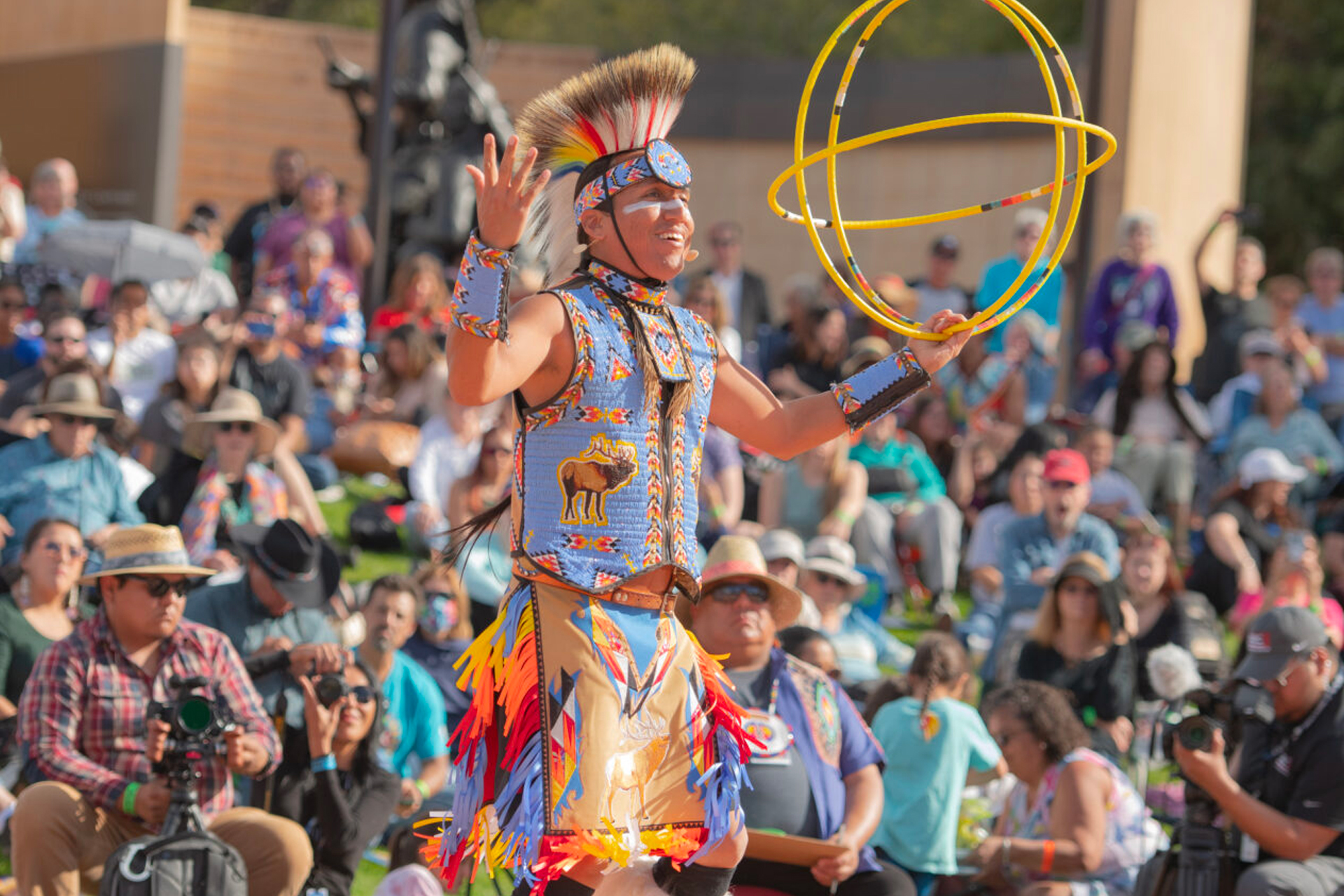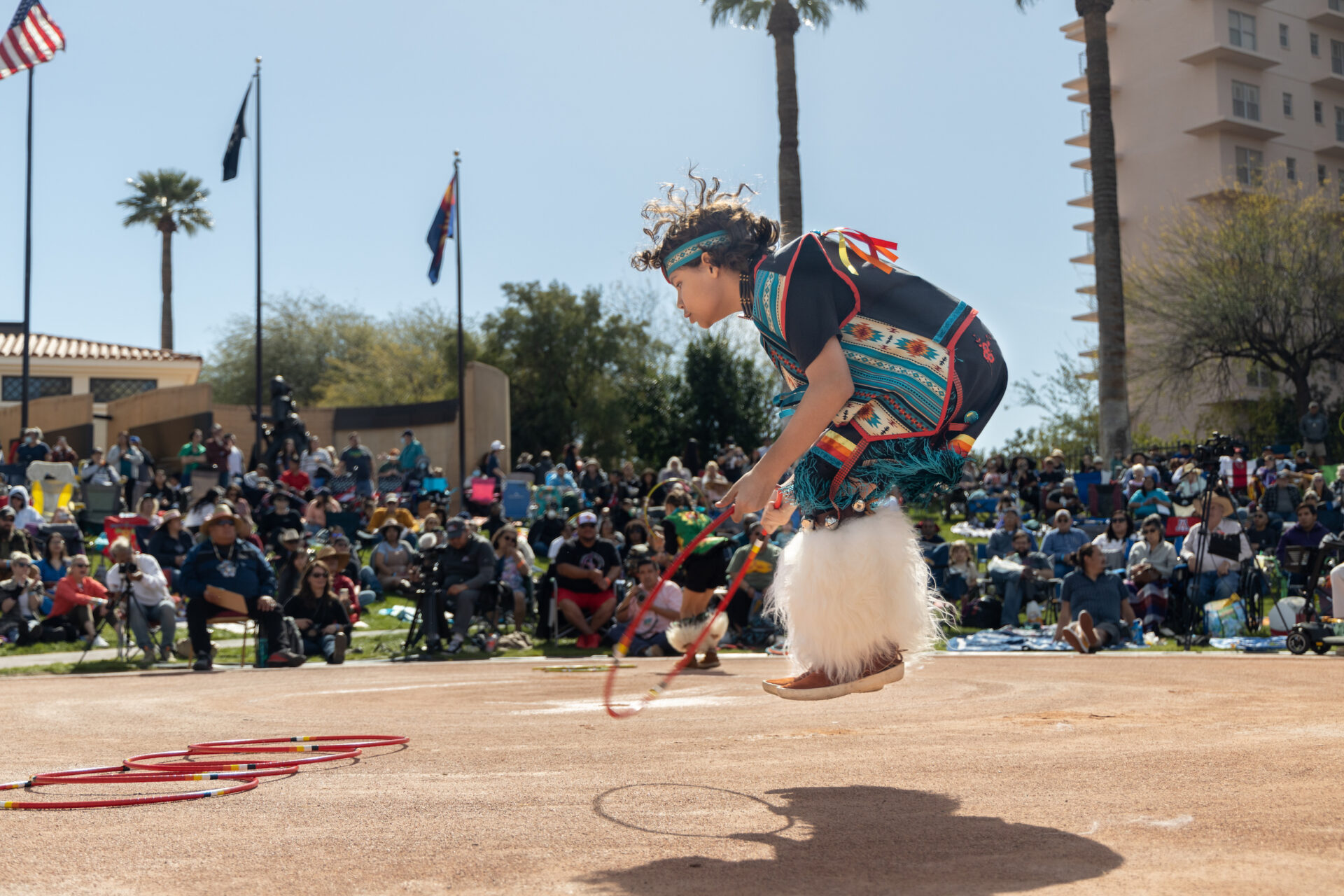CONGRATULATIONS 2024 HOOP DANCE CHAMPIONS!
Youth
1st Anjalee Andrews
2nd Naiche Duncan
3rd Isaiah George
Teen
1st Mateo Ulibarri
2nd Jerry Hunt
3rd Jerrhan First Charger
Adult
1st Josiah Enriquez
2nd Talon Ree Duncan
3rd Tony Duncan
4th Scott Sixkiller Sinquah
5th Beany John
6th Sky Duncan
Senior
1st Moontee Sinquah
2nd Terry Goedel
3rd Bartley Harris
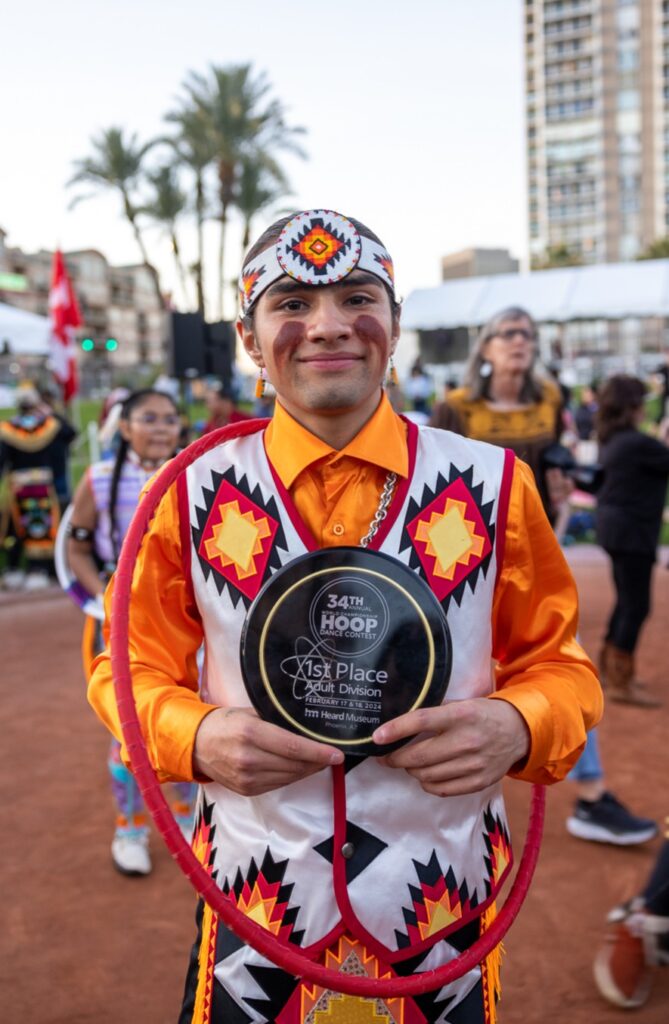
Welcome to the Heard Museum’s World Championship Hoop Dance Contest! This premier event features over 100 contestants from diverse tribal backgrounds throughout North America, showcasing their skills and passion. Since 1991, this event has been more than a competition, it’s a cornerstone for cultural preservation, spotlighting the profound history of hoop dancing in indigenous communities.
Enjoy delicious food & drinks from Emerson’s Frybread to Ni De Aqui, Ni De Alla Tacos, and energize yourself with Skoden Coffee or refreshing Bella’s Lemonade. Engage in hoop-themed family activities, explore offerings from community partners, and snag official merchandise from the OXDX Official Hoop Dance Merch Booth. And for those unable to attend in person, Gila River Broadcasting presents the Livestream of the event right here on this page both days, ensuring that the spirit of the contest reaches far and wide.
Join us in celebrating the artistry and resilience of indigenous peoples at this two-day extravaganza that promises to captivate, educate, and inspire all who attend.
2024 Heard Hoop Dance Contest Adult World Champion – Josiah Enriquez (Pueblo of Pojoaque)
Museum Parking
Let us help you find alternative parking options with our Parking Map and ensure a stress-free arrival at the museum for an unforgettable experience.
Light Rail Access
Embrace eco-friendly travel, beat traffic, and arrive seamlessly. Hop on board for a scenic journey and step off the Encanto/Central stop via Valley Metro Light Rail.
Ride Share
Arrive in style! Join our event at the museum hassle-free with convenient ride-share options. Skip parking stress, enjoy the journey, and make memories at the museum.
Yes. Tickets are available atht e entrance gate.
Culture Passes not valid during this Signature Event.
This is a rain or shine event. Should the weather turn grey, the competition may be postponed and/or moved indoors to the Steele Auditorium. If the forecast indicates rain we suggest bringing jackets, umbrellas, ponchos, etc.
Museum hours during Hoop are Sat 9 am-5 pm and Sun 9 am-4 pm.
The Coffee Cantina will open at 8:30 am and The Courtyard Café opens at 11 am.
Books and More opens at 9 am, The Shop opens at 10 am.
No outside food or drink is permitted. However, water bottles are permitted.
Dancers and family members are allowed to enter separately and keep belongings inside Steele Auditorium.
Popup tents not permitted.
Dancers are judged on a slate of five skills: precision, timing/rhythm, showmanship, creativity, and speed.
Contestants compete in one of five divisions: Tiny Tots (age 5 and younger), Youth (6-12), Teen (13-17), Adult (18-39) and Senior (40 and older). Cash prizes totaling $25,000 are awarded to winners in each division, and victors in each division can claim the honor of being the World Champion.
Through stunning performances of those women and men competing to be named the next World Champion Hoop Dancer, the event combines artistry, athleticism, tradition, and suspense for an unforgettable weekend of fellowship and competition.
Rules have been developed with input from the Hoop staff and Advisors to the program.
If you have any questions email us at: hoopdance@heard.org.
Heard Museum – 2024 World Champion Hoop Dance Contest Official Rules
Photos and video for personal use is permitted. Please review our photo/video policy to protect the rights of Indigenous Artists.
If intended for publication or sales, click the link below to fill our permission form for review.
Questions?
Interested in being a vendor, a sponsor, or have any general event questions? Email us at: hoopdance@heard.org
2023 World Champion Hoop Contest Highlights
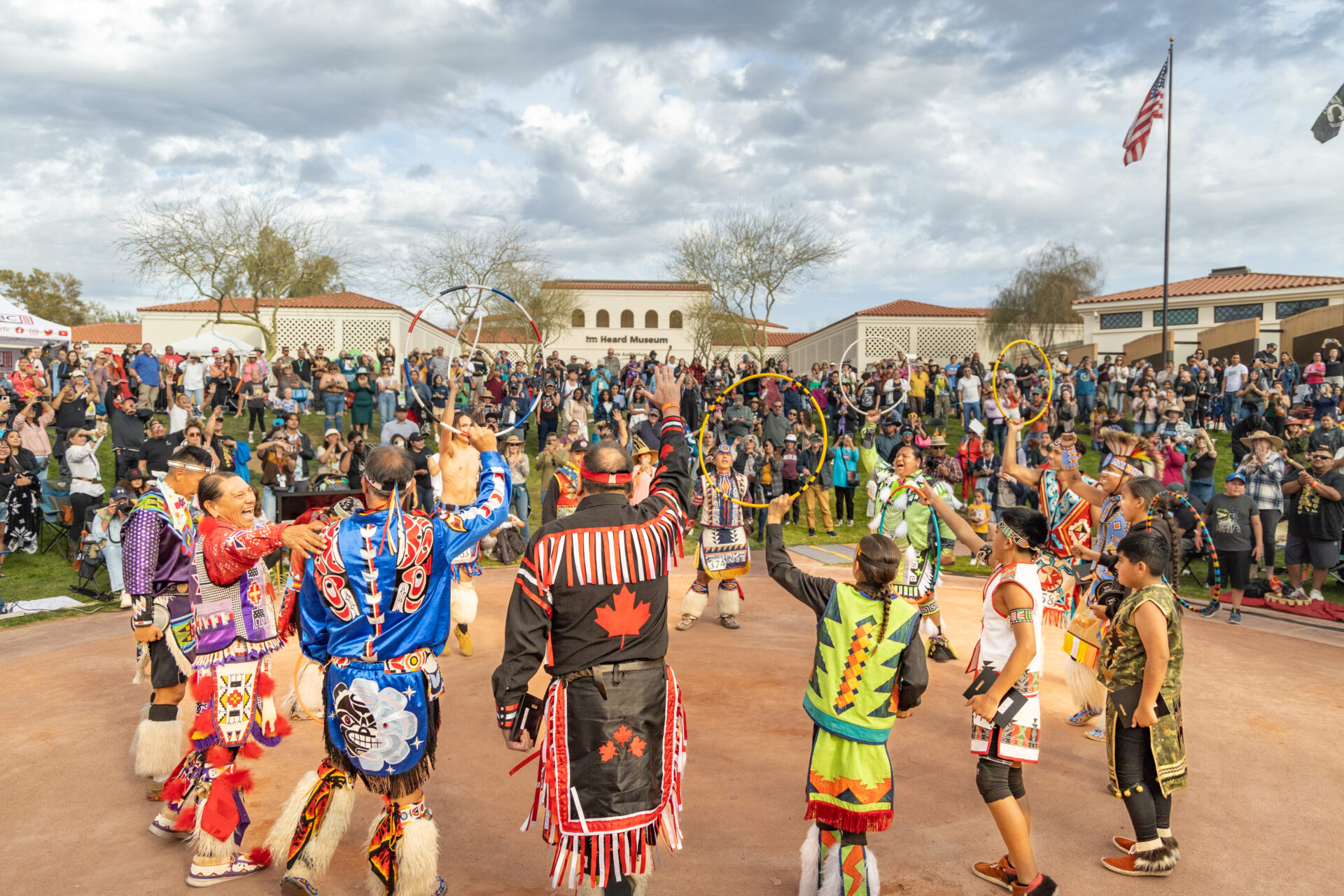
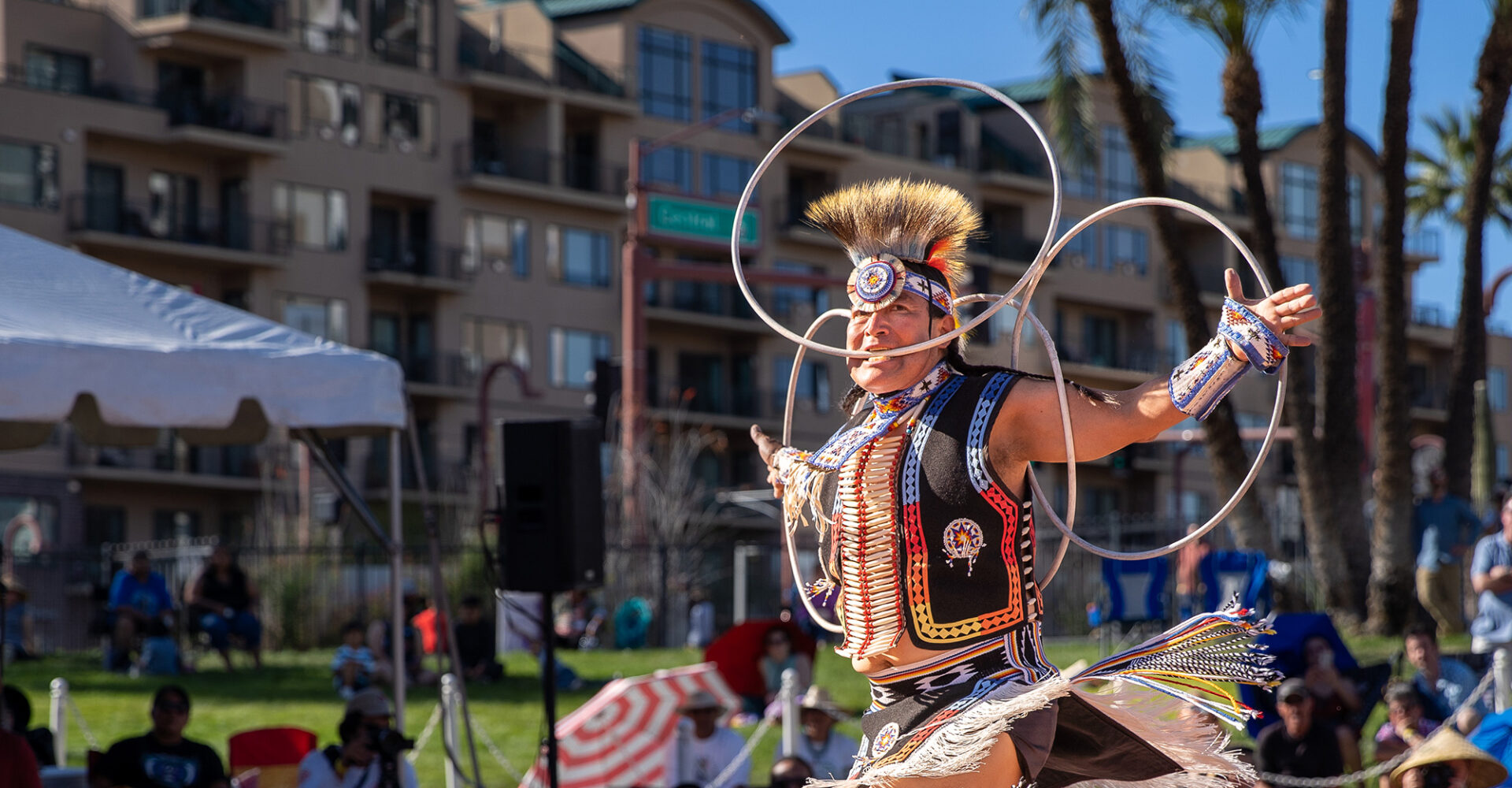 https://vimeo.com/918510715?share=copy
https://vimeo.com/918510715?share=copy